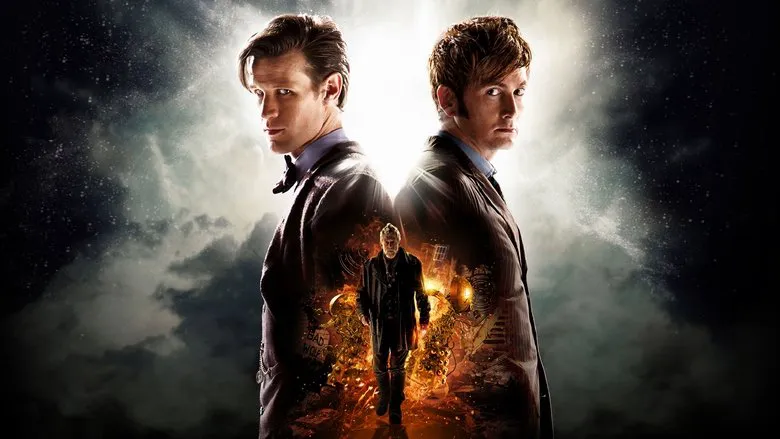“Doctor Who”: A Timeless Odyssey Through Existence, Time, and the Human Spirit
“Doctor Who,” the venerable and beloved British science fiction series, effortlessly transcends the conventional boundaries of television entertainment. More than just a collection of adventures through space and time, it serves as a profound philosophical exploration, delving into universal themes that resonate deeply with viewers of all generations. From the bewildering complexities of temporal paradoxes to the seductive allure and inherent dangers of imagined perfect societies, the show skillfully interweaves intricate concepts, always anchoring them firmly in the enduring tapestry of the human condition.
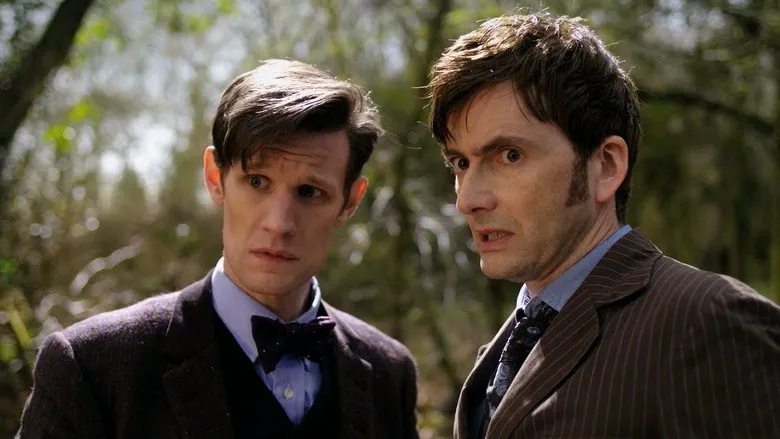
Time Travel: A River of Infinite Possibilities, Bound by Immutable Laws
The very essence of “Doctor Who” is predicated on the fantastical notion of time travel. Renowned physicists like Stephen Hawking famously theorized that while journeys to the past are fraught with the potential for destructive paradoxes and thus likely impossible, traveling forward through time remains a plausible concept, with varying speeds being the instrumental factor.
Albert Einstein’s groundbreaking theories of relativity offer a scientific bedrock for these ideas, suggesting that time itself is not an absolute constant but can be manipulated—slowed down or accelerated—depending on one’s velocity and proximity to gravitational fields. The Doctor’s remarkable vessel, the TARDIS (Time And Relative Dimension In Space), a humble blue police box on its exterior, stands as a triumph of imaginative science fiction, yet it subtly echoes these real-world theoretical principles. Its ability to breach the very fabric of spacetime, creating temporal rifts, is the fantastical key to its unparalleled temporal capabilities.
The Irreversible Current of Time
Despite the TARDIS’s incredible power, “Doctor Who” frequently underscores the inherently irreversible nature of time. A poignant illustration of this theme is found in the episode “Father’s Day,” where an unforeseen temporal anomaly leads to devastating consequences. The father’s ultimate, heartbreaking sacrifice to rectify the timeline and save both his daughter and the world powerfully reinforces the notion that certain events, once materialized, cannot be undone. This narrative beats a strong rhythm with Heraclitus’s ancient philosophical observation, “No man ever steps in the same river twice,” reminding us that every moment is unique and transient.
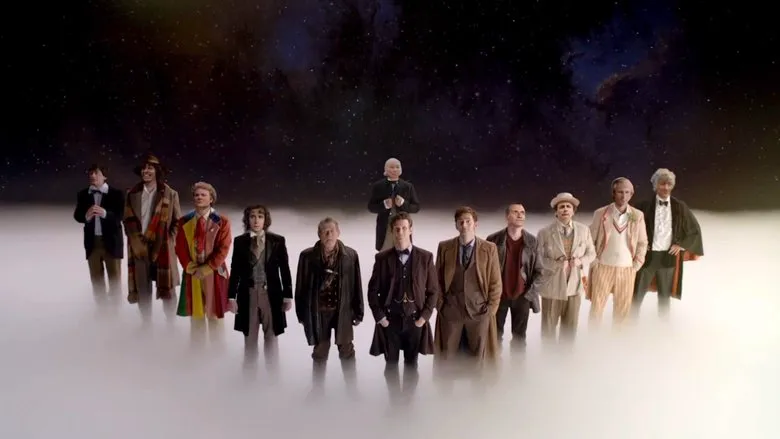
The Paradox of Intervention
The fine line between aiding and interfering is masterfully explored in the Christmas special “The Waters of Mars.” Overwhelmed by helplessness and grief at the sight of an inevitable tragedy, the Tenth Doctor, in a moment of hubris fueled by his self-proclaimed role as the Last of the Time Lords, defiantly breaks the established laws of time to save a human. Yet, the consequence is tragic. The very astronaut he rescues, burdened by the realization of her altered fate and fundamental disagreement with his actions, ultimately chooses to fulfill her original, tragic destiny, highlighting the ethical quagmire inherent in wielding such immense power over reality.
Bending the River: Crafting New Narratives
With the arrival of the formidable Eleventh Doctor and the ingenious storytelling of showrunner Steven Moffat, the series embraced a more complex, oftentimes non-linear approach to time. The Doctor’s manipulation of temporal events became more fluid and audacious. Narratives like that of River Song, whose personal timeline runs in reverse to the Doctor’s, perfectly exemplify this novel approach to chronology. Furthermore, companions such as the enigmatic Clara Oswald were able to literally step into the Doctor’s personal timeline, directly influencing and saving him, pushing the boundaries of what was previously thought possible within the Whoniverse.
The Inevitable Tides of Fate
Even with the capacity to weave intricate temporal loopholes, “Doctor Who” remains grounded by acknowledging that some events are simply immutable, predetermined by destiny or narrative necessity. The Doctor, for all his power, cannot truly prevent the Ponds from living out their natural lives in a distant past, nor can he ultimately avert the heartbreaking, predetermined death of Clara Oswald. These unalterable facts underscore a profound message: while individual choices matter, some grander currents of fate are beyond even a Time Lord’s influence.
Embracing the Present Moment
In the bittersweet Christmas special “The Husbands of River Song,” a profound exchange between the Doctor and River encapsulates the show’s philosophical outlook on time and happiness. The Doctor, displaying a rare vulnerability, remarks to River, “Not everything lasts. Not every Christmas is the last Christmas.” He stoically accepts that time will, inevitably, bring an end to all things, emphasizing that there is no perpetual “happily ever after,” but rather only precious, fleeting moments of happiness to be cherished and savored. River, ever the optimist, counters his melancholic realism, passionately advocating for the active pursuit and embrace of joy squarely in the present.
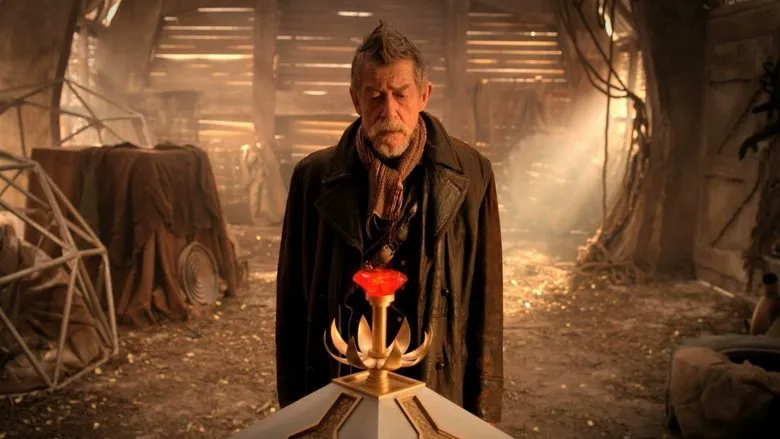
Time as a Cycle: Echoes of Eastern Philosophy
Beyond its linear progression and chronological interventions, “Doctor Who” subtly integrates the circular concept of time, a prevalent theme in Eastern philosophies. This manifests through recurring characters, motifs, and narrative arcs that resonate throughout the series, creating a sense of destiny and recurrence.
Echoes of the Past Resounding in the Present
A compelling instance of this cyclical nature is observed in “The Unquiet Dead,” where the brave Victorian maid, Gwyneth, heroically sacrifices herself to seal a dangerous time rift. Years later, in the spin-off series “Torchwood,” her descendant, Gwen Cooper, emerges—portrayed, notably, by the very same actress, Eve Myles. This deliberate casting choice creates a powerful thematic resonance, suggesting an inherited destiny or a grand pattern replaying across generations.
A Philosophical Reflection on Cyclic Existence
The magnificent Fiftieth Anniversary special “The Day of the Doctor” delves deeper into the philosophical ramifications of these temporal loops and recurring patterns. The Eleventh Doctor’s enchanting encounter with the mysterious Curator, embodied by the beloved Fourth Doctor, Tom Baker, brilliantly highlights the cyclical nature of human experience and, indeed, the very essence of the Doctor’s own regenerating existence. The Curator’s cryptic yet profound line, “You might find yourself revisiting a few familiar places,” perfectly encapsulates the notion that history, and indeed life itself, often repeats its themes and lessons. This philosophical nod not only echoes Eastern concepts of reincarnation and cyclical existence but also serves as a heartfelt homage to the show’s rich lore and the enduring legacy of its beloved characters and the actors who have brought them to life.
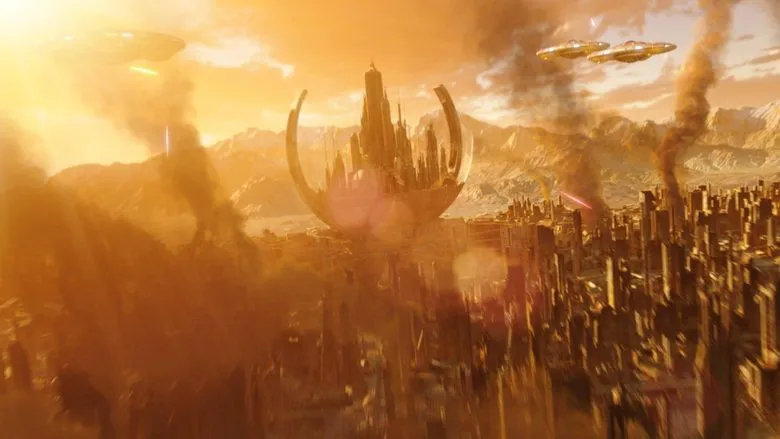
Utopia and Dystopia: Unpacking the Idealized and the Perilous World
The concept of an ideal world, often termed “utopia” after Thomas More’s seminal work, has captivated imaginative literature for centuries. “Doctor Who” meticulously dissects this theme, exploring both the undeniable allure of such perfect societies and the insidious pitfalls that frequently lie beneath their polished surfaces.
The Doctor’s Personal Utopia
For the Doctor, his utopian ideals are multifaceted. While his home planet, Gallifrey, is often presented as a sublime beacon of Time Lord civilization—a place of immense knowledge and power, it is a complicated utopia, having faced unimaginable horrors itself. More significantly, the Doctor’s continuous journey through the cosmos in the TARDIS embodies the ultimate personal utopia. This boundless freedom, encompassing the exploration of countless new worlds and infinite possibilities, serves as a powerful metaphor for a life of boundless adventure and unending discovery, subtly urging viewers to embrace curiosity and exploration in their own lives.
A Cautious Approach to Perfection
“Doctor Who” consistently approaches the concept of utopia with a healthy dose of skepticism, keenly aware of its potential for disillusionment and societal rigidity. In the grim episode “Utopia,” the Doctor himself articulates the concept as an “ancient dream,” instantly emphasizing its fictional, often unattainable nature. The depiction of various seemingly perfect societies throughout the series often reveals a hidden, dark underside, forcing audiences to question the true cost of such manufactured bliss.
The Perils of Escapism
The series vigilantly avoids romanticizing utopian worlds, instead shining a light on the inherent dangers of complete escapism. It subtly acknowledges a human tendency, particularly in children and adolescents, to seek refuge in fantastical realms when faced with overwhelming or difficult realities. While imagination is celebrated, the show warns against an over-reliance on idealized fantasy worlds as a means of avoiding confrontation with genuine, real-world problems and responsibilities.
The Dystopian Counterpoint
To provide a comprehensive and balanced perspective on utopian visions, “Doctor Who” frequently weaves in stark dystopian elements. This critical juxtaposition challenges viewers to assess the true value of any seemingly perfect society if its existence demands the suppression of individual freedom, autonomy, or self-expression. The show probes the cost of enforced peace, the suppression of emotion, or the obliteration of history in the name of an artificial “paradise.”
The Price of Peace and Progress
The momentous Fiftieth Anniversary special further amplifies this theme. The ultimate weapon, “The Moment,” deployed to conclude the devastating Time War, achieved peace but at the horrific price of obliterating two advanced civilizations. This cataclysmic event serves as a stark reminder of humanity’s capacity to create advanced technology that can descend into tools of unparalleled fear and destruction, even when wielded with the best intentions.
A Call to Action and Engagement
The show’s exploration of dystopian realities is not intended to instill fear or despair but rather to serve as a vital reminder of the inherent imperfections of even the most grand utopian ideals. It is a clarion call, especially to its younger audience, encouraging them to engage actively with the complexities of the present world, to critically evaluate seemingly perfect solutions, and to avoid becoming complacent or overly reliant on fabricated constructs that promise effortless perfection.
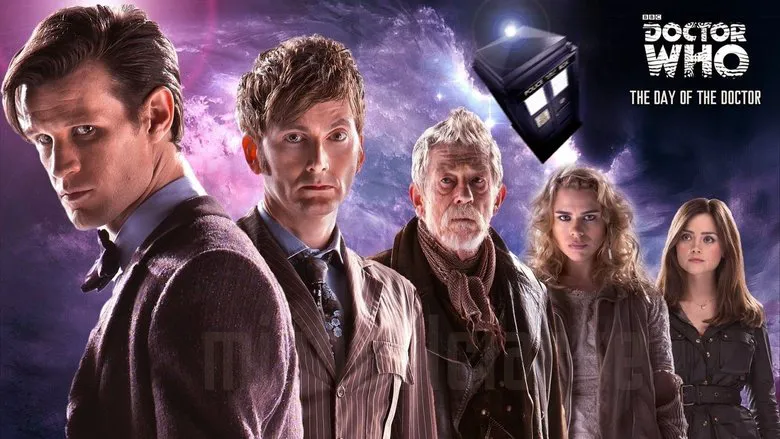
Themes in Action: Dynamic Storytelling and Undulating Relevance
“Doctor Who” truly distinguishes itself through its remarkable ability to present complex, diverse, and profoundly relevant themes in a captivating manner that resonates profoundly with its broad and varied audience.
Child-Centered Narrative Framework
Despite the weighty nature of its underlying philosophical and scientific concepts, the show’s themes are consistently rendered accessible and enthralling for children. It empathetically addresses their innate hopes, their profound fears, and their innocent desires, while simultaneously nurturing their burgeoning critical thinking skills about the rich and complex world surrounding them.
Addressing Growth and Reality
The series masterfully utilizes themes such as utopia and dystopia to not only cater to children’s natural inclination towards fantasy and aspiration but also to gently guide them towards a deeper understanding of the inherent distance and challenges that often exist between fantastical realms and the messy realities of the real world. This teaches crucial lessons about discernment and pragmatism.
The Flow of Time: Abstract and Concrete
The recurring metaphor of the “river of time” is presented in both conceptually abstract and concretely tangible ways across various episodes. This dual approach helps children grasp the elusive concept of temporal passage, subtly imbuing them with the important life lesson of cherishing each present moment as an irreplaceable gift.
The Imperfect, Yet Inspiring Hero
The Doctor, despite being a near-immortal, super-intelligent alien, is consistently depicted as a flawed, vulnerable, and often lonely hero. This portrayal teaches children a vital lesson: that even the most extraordinary individuals are imperfect, and conversely, that every ordinary person possesses inherent importance and the capacity to make a significant, positive difference in the world.
A Broader Perspective on Universal Struggles
Themes as grand as war and peace, and as intimate as the enduring importance of family, are consistently presented from a broad, often humanitarian perspective within the show. This expansive lens makes these complex issues far more relatable and impactful for young viewers than simplistic slogans or didactic moralizing, fostering empathy and global awareness.
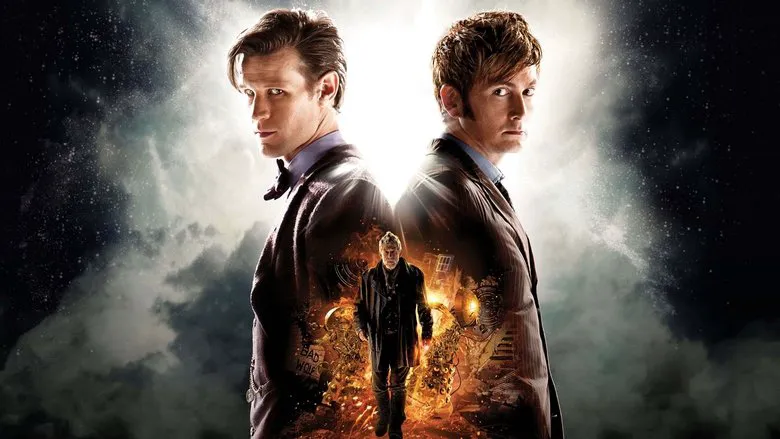
In culmination, “Doctor Who” stands as far more than merely a science fiction television program. It is an intellectual playground, a profound journey, and a captivating exploration through the interwoven threads of time, the alluring mirages and harsh realities of utopia, and the everlasting complexities of the human condition. By confronting these intricate and sometimes daunting themes in a manner that is consistently entertaining, deeply accessible, and intellectually stimulating, the show inspires generations of audiences to cultivate critical thinking, to embrace the endless possibilities of their own futures, and to ultimately engage with the world around them with boundless curiosity and open hearts.
